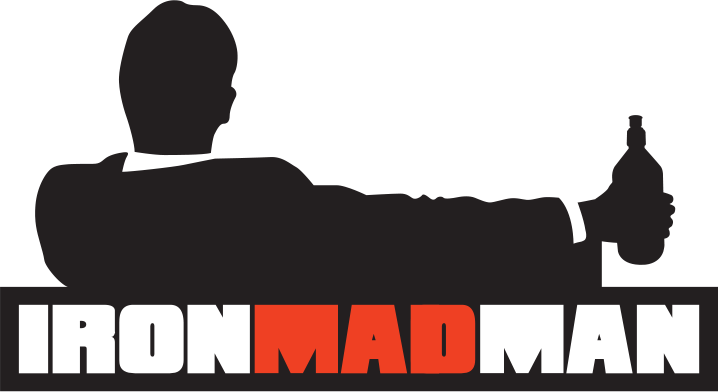The Only Choice
/I grew up going to two schools, public and Torah. At the latter, we'd discuss Judaic teachings, of course, but we'd also cover more general moral lessons too. One always stood out to me. This is the scenario: You're at the beach. You spot a random stranger drowning in the surf. Nearby, your favorite pet dog is swept up in the tide and current as well. You can't save both. Pick one. There is a right answer.
As a child, this was a true dilemma. Your pet is a family member, right? But really, it's obvious now which one you should save, I hope.
Now what the hell does this have to do with triathlon?
I found out today during the bike portion of the Santa Barbara Triathlon long course, metaphorically speaking. After an intense, choppy and frigid swim, I found myself struggling up the first several miles worth of climbing on the bike. Until mercifully, I reached the top to begin a fairly steep, technical descent filled with switchback turns. It's the kind of descent that sneaks up on you in a race because the first few miles on the bike are usually spent recovering from the swim, and then the focus turns to keeping the heart-rate in check on the climbing. It's easy to fall into a hypnotic mental and physical rhythm because doing so dampens the pain in your quads, neck, shoulders and lower back. The challenge becomes balancing relaxing on the downhills while remembering how dangerous they are.
Unfortunately, I saw just how dangerous they were firsthand. As I began to rocket downward, I realized I was carrying too much speed around the right corner heading into El Toro Canyon. I squeezed the brakes...hard. Flashbacks of my Santa Susana Pass crash in 2009 raced through my head. They helped me avoid panicking though as I looked through the turn, composed myself and corrected while staying on the right side of the road. But someone was riding behind me closer than they should have as I crushed the brakes. The cyclist consequently veered around my left-side, forcing him farther out beyond the double-yellow lines on the turn.
Things went real bad from there. His back wheel wobbled and skidded on loose dirt and leaves. He tried to correct the skid, lost control, and slammed down on his left side, hurtling down the street on his shoulder, legs and back.
I keep playing in my mind the grimace on his face as he slid down the street. I can see the whites of his teeth and wince in his closed eyes.
The sad part is I kept pedaling for a moment, choosing between competition and compassion.
It's not really a choice. Compassion quickly won out -- but not without a brief internal struggle. I work hard to arrive at race day ready to do my best, and once the starting gun goes off, that's my reward for all the hours spent training and preparing. It's my time to shine and see how I stack up with the best! Still, what kind of man would I be had I kept pedaling, even finishing with a personal best? That's something I would have regretted quite possibly for the rest of my life.
Thankfully, I won't have to put myself through that kind of self-torture. After the accident, I slowed, pulled over safely several feet downhill, turned around and rode back up the incline to check on the rider. He was standing, hands clutched on knees, waving me off. "I'm alright, get back to your race. I'm OK," he said.
I shouldn't have listened. The impact sounded horrendous and looked even worse. But, the man told me he was fine. I asked him if he was absolutely sure and if he was going to try and continue. He said yes to both.
I solemnly turned downhill and resumed my race.
I later found out the cyclist needed an ambulance and was placed on a flatboard.
On one hand, I know I did the right thing by stopping. On the other hand, I didn't do enough by neglecting to stay with him until medical attention arrived. I knew better.
However, I would have done exactly the same thing as the downed rider. I wouldn't want someone else's race ruined because of my crash.
I keep telling myself that.
Maybe I need to go back to Torah school.
84 days and counting.
